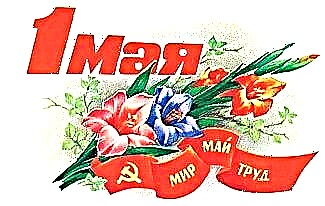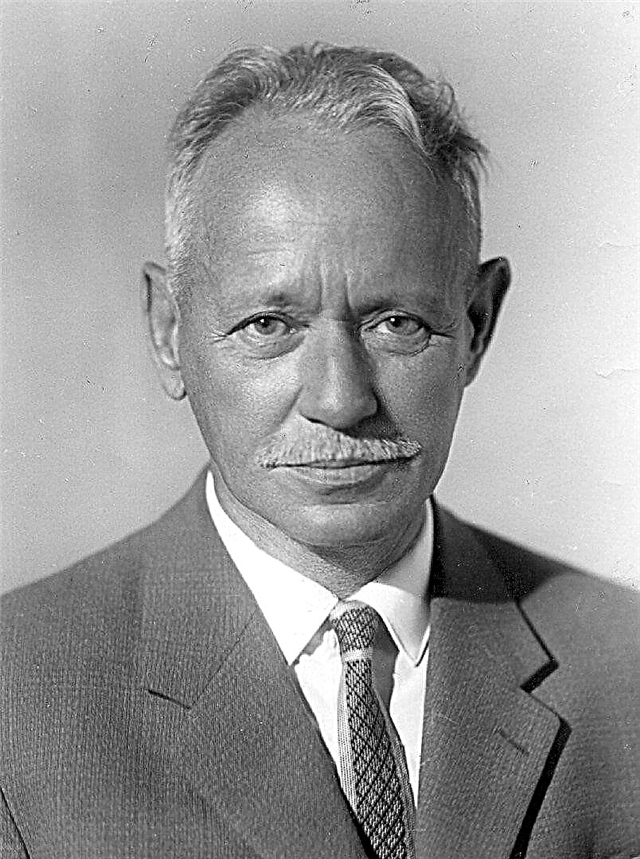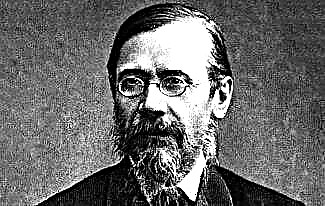He did away with the guards freelancer, who had hung the sword of Damocles over the Russian monarchs for decades. Improved public administration. Optimized public finances. He did a lot of work to prepare the abolition of serfdom. I made the yard speak Russian. He was an exemplary husband and father. Built the first railways in Russia.
Shamefully lost the Crimean War. Closed the road to education for people from the common people. He stifled new ideas in every possible way. He created the Third Squad, which enveloped the whole country with the tentacles of informers. He led a tough foreign policy. He militarized everything that was possible. He crushed Poland, which was striving for freedom.

This is not a comparison of two historical figures. This is all about the Russian Emperor Nicholas I (1796 - 1855, ruled from 1825). No one could have predicted his appearance on the throne. Nevertheless, Nicholas I ruled the Russian Empire for a solid four, preventing social upheavals, strengthening state power and increasing the territory of the state. Paradox - evidence of the effectiveness of Nikolai's rule was his death. He died in his bed, transferring power to his son, and no one dared to challenge this inheritance. Far from all Russian autocrats did this.
1. Little Nikolai Pavlovich was looked after by a whole staff of servants. It consisted of 8 stokers and lackeys, 4 maids, 2 valets and a chamber-lackey, 2 “night” ladies on duty, a bonn, a nurse, a nanny and an educator with the rank of general. The baby was rolled around the palace in a gilded carriage. Since the movements of the crowned persons were recorded in a special journal, it is easy to establish that neither Emperor Paul I nor Mother Maria Fedorovna pampered Nicholas with their attention. Mom usually went to the baby for half an hour, or even less, before dinner (it was served at 21:00). The father preferred to see the children during the morning toilet, also giving the kids very little time. Grandmother Catherine I I was very kind to children, but she died when the future emperor was not even six months old. It is not surprising that the closest person to Nicholas was a young Scottish nanny. Having already become emperor, Nikolai and his family sometimes stopped by Charlotte Lieven for tea. The night of the murder of his father (according to the official version, Paul I died of an apoplectic stroke on March 12, 1801) Nicholas did not remember, only the coronation of his brother Alexander was remembered.

2. When Nikolai was 10 years old, the nannies and lackeys were finished. General Count Matvey Lamsdorf became the main educator of the Grand Duke. Lamsdorf's main pedagogical principle was "Hold and keep out." He constantly created artificial prohibitions for Nicholas, for the violation of which the Grand Duke was beaten with rulers, canes, rods and even ramrods (alas, “you can touch the prince of royal blood only to cut off his head,” this is not for us). Mother was not against it, the elder brother, Emperor Alexander I, saw neither the light nor the younger brother behind the liberal reforms (they had not seen each other for 3 years). The boy's response convinced Lamsdorf - we must continue to beat the crap out of the Grand Duke, for he is unbecoming, impudent, impetuous and lazy. All this struggle did not prevent Nikolai from becoming a general at the age of 12 - he became a colonel-horse guard at the age of 3 months (his salary was 1,000 rubles).
3. Mom and older brother did not let the young general go to the Patriotic War of 1812, but Nikolai and brother Mikhail took part in the European campaign. Even in two - the brothers commanded regiments at the solemn parade after the "Hundred Days of Napoleon". From the first campaign, Nikolai brought the most important trophy of his life - the heart of Princess Frederica-Louise-Charlotte Wilhelmina, who in 1817 became his wife, and later the Russian empress and mother of 8 children.

4. The wedding with Charlotte took place on July 1, 1817, on her birthday. On June 24, Charlotte was baptized into Orthodoxy under the name of Alexandra Fedorovna. The manifesto, written by the admiral and part-time writer Alexander Shishkov (the one who fought with Nikolai Karamzin because of the words "industry" and "sidewalk") was read personally by Emperor Alexander I. We owe Charlotte-Alexandra Fedorovna a New Year tree - it was she who instilled the custom decorate an evergreen tree for Christmas.

5. Slightly more than 9 months after the wedding, Alexandra gave birth to a son, who was destined to become Emperor Alexander I I. The firstborn, without knowing it, placed a heavy burden on his parents. A year after his birth, the uncles, represented by the childless emperor and the stupid Constantine, came to the family dinner and told Nikolai and Alexandra that, due to their personal inclinations and the absence of sons, Nikolai would have to accept the Russian imperial crown. To reassure the youth, Alexander I said that perhaps he would not abdicate the throne tomorrow, but “when he feels this time”.
6. Catastrophic for the opinion of contemporaries and historians about the future emperor was the fact that Nicholas, while still the Grand Duke, demanded that officers serve. Since the time of Peter III, the freemen of the military have acquired unprecedented dimensions. The Grand Duke staged terrible repressions: officers were ordered to appear in the regiments only in uniforms. The appearance in civilian clothes was excluded (some of the servicemen came to the inspection in a tailcoat - after all, they shouldn't go to change before dinner).

7. Nikolai kept a rather scattered diary, from which it can be learned that he personally met orderlies carrying pillows and similar belongings to field pickets. The strictest punishment in the form of an arrest immediately canceled with the replacement of 10 orders of arrest was perceived by the officers extremely violently. The Grand Duke himself wrote that they did not understand him and did not want to understand, and the "military debauchery" was led by an insignificant part of the "lazy talkers." Putting order in only two regiments (Nikolai commanded the Izmailovsky and Jaegersky regiments) required significant efforts.
8. The uprising of the Decembrists and the accession of Nicholas to the throne are among the most controversial events in Russian history. Dotted lines indicate the following milestones. Nicholas took the throne legally - Alexander I died, the abdication of Constantine was documented. A conspiracy has long been ripening among middle-level officers - the gentlemen wanted freedom. Smart people in the top leadership knew very well about the conspiracy - the same St. Petersburg governor, Count Miloradovich, who was killed on Senate Square, constantly had lists of "brotherhoods" in his pocket. At a convenient moment, smart people began, allegedly out of ignorance, to bring troops and civilians to the oath of oath to Constantine. Then it turned out that he had to swear allegiance to Nikolai. Fermentation began, the conspirators decided that their time had come. And he really struck - at some point on December 14, 1825, only the Life Guards engineer battalion stopped a crowd of soldiers in front of the entrance to the Winter Palace, where the family of the new monarch was. Stones and sticks were thrown at Nicholas and his retinue, and he broke through to the Senate with only a couple of dozen escorts. The Emperor was saved by his own determination - in the center of the capital, not everyone is capable of shooting cannons with cannons at their own soldiers. The disunity of the then “non-systemic opposition” also helped. While the Decembrists were figuring out which of the dictators hid where, government troops cordoned off the rebels, and by evening it was all over.

9. In the evening of December 14, 1825, Nicholas I became a completely different person. This was noted by everyone - both his wife and mother, and those close to him. The Emperor returned to the palace from the Senate Square. He behaved accordingly during the investigation of the conspiracy and the uprising of the Decembrists. And he had to endure no less than on the square, when the approach of literally every new platoon could mean victory or death. Now the emperor knew the price of loyalty and betrayal. Too many were involved or knew about the conspiracy. It was impossible to punish everyone, it was impossible to forgive. Compromise - 5 hanged men, hard labor, exile, etc. - did not satisfy anyone. The liberals cried out about a bloody stain on the history of Russia, the law-abiding ones were perplexed - only 30 years have passed since the same conspirators killed their father, and the Tsar is showing such gentleness. All this murmur and confusion lay on the shoulders of Nicholas I - they begged him, petitioned him, demanded of him ...
10. Nicholas I was distinguished by great diligence. Already at 8 o'clock he began to receive ministers. An hour and a half were allotted for this, followed by work with reports on the highest name. The emperor had a rule - the answer to the incoming document must arrive on the same day. It is clear that it was not always possible to comply with it, but the rule existed. Opening hours again began at 12. After them, Nikolai used to visit any institution or enterprise, and he did it without warning. The emperor dined at 3 o'clock, after which he spent about an hour with the children. Then he worked with documents until late at night.
11. Based on the results of the uprising on December 14, Nicholas made the correct conclusion: the monarch should have one heir, approved and prepared for the throne. Therefore, whenever possible, he was engaged in raising his son Alexander. More, of course, the control of upbringing - monarchs are often deprived of the joy of constant communication with children. As the heir matured, he was entrusted with more and more serious matters. In the end, he received the position of "acting emperor" during his absence in St. Petersburg. And the last words of Nikolai before his death were addressed to the heir. He said, "Hold everything."
12. Green and white dress, a portrait of the empress on the right breast - the classic form of maid of honor. Varvara Nelidova also wore such clothes. She was most likely the only lover of Nikolai outside of marriage. A situation chewed on in hundreds of women's novels: the husband loves his wife, who can no longer give him what he needs physically. A young and healthy rival appears, and ... But no “and” happened. Alexandra Fyodorovna closed her eyes to the fact that her husband had a mistress. Nikolai continued to treat his wife with reverence, but he also paid attention to Varenka. It is Athos from the “Three Musketeers” that kings by birthright are above all mortals. In real life, they have a much more difficult time than ordinary alimony givers. The main heroine of this story is Varvara Nelidova. The gigantic sum of 200,000 rubles for her fifth daughter in a poor noble family, bequeathed to her by Nikolai, she handed over to the needs of the disabled and wanted to leave the maids of honor in the palace. At the request of his mother, Alexander I I persuaded her to stay. Varvara died in 1897. Grand Duke Mikhail Nikolaevich attended her funeral. 65 years ago, after his birth, doctors forbade Alexandra Fyodorovna to give birth, after which Nikolai's romance with Varvara began. Hardly any other mistress in history could be proud of such a sign of respect.

13. Nikolai really was, as Leo Tolstoy wrote, “Palkin”. Sticks - shpitsruteny - were then included in the military regulations as one of the types of punishment. Soldiers were given 100 blows on the back with a stick soaked in saline solution more than a meter long and about 4 centimeters in diameter for breaking the dress code. For more serious violations, the score for gauges went to the thousands. It was not recommended to give more than 3,000 gauntlets, but there were excesses in places even then, and even a thousand blows were enough for an average person to die. At the same time, Nikolai was proud that he did not use the death penalty. The emperor himself resolved the contradiction for himself by the fact that the rods are in the charter, which means that their use, even before the death of the punished, is legal.

14. The executive discipline of the highest bodies of state power at the beginning of Nikolai's reign was as follows. Sometime around 10 o'clock, he decided to look into the Senate. In those years, the Senate was the highest executive body in the country - something like the current Cabinet of Ministers, only with broader powers. There was not a single official in the Criminal Department. Praise to the Emperor - he did not make an obvious conclusion about the final victory over criminal crime. Nikolay went to the Second Department (the "numbered" departments were engaged in judicial and registration cases) - the same picture. Only in the Third Department did the autocrat meet a living senator. Nikolai loudly said to him: "A tavern!" and left. If someone thinks that the senators felt bad after that, he is mistaken - it was just Nikolai that felt bad. His attempt, in modern terms, hitting, was reflected. Senators vied with each other to inform the tsar that normal people generally do not leave their homes before 10, that the brother of the current emperor Alexander, God rest his soul, treated the best people of the Empire incomparably softer and allowed them to appear in presence at 10 or 11 o'clock. On that and decided. Such is the autocracy ...

15. Nikolai was not afraid of the people. In January 1830, massive celebrations were held at the Winter Palace for everyone. The task of the police was only to prevent a crush and control the number of those present - there should have been no more than 4,000 of them at a time. How the police officers managed to do this is unknown, but everything went peacefully and smoothly. Nicholas and his wife floated through the halls with a small retinue - the crowd opened up in front of them and closed up behind the royal couple. After talking with the people, the emperor and the empress went to the Hermitage for dinner in a narrow circle of 500 people.
16. Nicholas I displayed courage not only under bullets. During the cholera epidemic, when it was raging in Moscow, the emperor came to the city and spent whole days in the midst of people, visiting institutions, hospitals, markets, orphanages. The footman who cleaned the emperor's room and the woman who kept the palace in order in the absence of the owner died. Nikolai stayed in Moscow for 8 days, inspiring the fallen with the spirit of the townspeople, and returned to St. Petersburg after serving the prescribed two-week quarantine.
17. Taras Shevchenko was sent to the army not at all for his love of freedom or literary talent. He wrote two libels - one on Nicholas I, the second on his wife. Reading the libel written about him, Nikolai laughed. The second libel led him to a terrible anger. He called Tsarina Shevchenko skinny, thin-legged, with a shaking head. Indeed, Alexandra Fedorovna was painfully thin, which was aggravated by frequent childbirth. And on December 14, 1825, she almost had a stroke on her feet, and her head really trembled in moments of excitement. Shevchenko's baseness was disgusting - Alexandra Fedorovna bought a portrait of Zhukovsky with her own money. This portrait was then played in a lottery, with the proceeds from which the money was bought by Shevchenko from serfdom. The emperor knew about this, but the main thing was that Shevchenko knew about it. Indeed, his exile as a soldier was a form of mercy - for Shevchenko's travel for a state-owned destination somewhere on Sakhalin, an article would be found in this case.
18. The reign of Nicholas I in terms of strengthening and expanding Russian statehood was unprecedented. Moving the border 500 kilometers towards the expansion of the territory of Russia was in the order of things. Adjutant General Vasily Perovsky in 1851 launched the first steamships across the Aral Sea. The border of the Russian Empire began to run 1,000 kilometers further south than before. Nikolai Muravyov, being the Governor of Tula, presented to Nicholas I a plan for the development and expansion of the Russian Far East. The initiative is punishable - Muravyov received powers and went to his Promised Land. As a result of his stormy activities, the Empire received about a million square kilometers of territory.
nineteen.The Crimean War remains an unhealed ulcer both in the history of Russia and in the biography of Nicholas I. Even the chronicle of the collapse of the Empire many begin with this second clash between Russia and the European Union. The first, Napoleonic, was recaptured by Nikolai's elder brother Alexander. Nikolay could not cope with the second. Neither diplomatic nor military. Perhaps the empire's bifurcation point was in Sevastopol in 1854. Nikolai did not believe that the Christian powers would enter into an alliance with Turkey. He could not believe that the kindred monarchs, whose power he retained in 1848, would betray him. Although he had a similar experience - the Petersburg citizens threw logs and cobblestones at him in 1825, not embarrassed by their respect for the God-bearer. And educated fellow citizens did not disappoint, having worked according to the well-known tracing paper: the rotten regime did not provide the soldiers with ammunition (boots with cardboard soles were remembered for everything), ammunition and food. As a result of the war, Russia did not lose territories, but, much worse, it lost its prestige.

20. The Crimean War brought Nicholas I to the grave. In early 1855, he fell ill with either a cold or the flu. Only five days after the onset of the illness, he admitted that he was "completely unwell." The emperor did not receive anyone, but continued to work with the documents. Barely feeling better, Nikolai went to see off the regiments leaving for the front. From new hypothermia - the then ceremonial uniforms were calculated exclusively for warm weather - the disease worsened and turned into pneumonia. On February 17, the emperor's condition deteriorated sharply, and shortly after noon on February 18, 1855, Nicholas I died. Almost until the last minutes of his life, he remained conscious, having time to give orders to organize a funeral and embalm his body.

21. There were many rumors about the death of Nicholas I, but they hardly have any foundation. Any serious illness in those years was fatal. The age of 60 was also respectable. Yes, many lived longer, but the emperor had 30 years of constant stress of running a huge state behind him. The Emperor himself gave a reason for rumors - he ordered to embalm the body with the help of electricity. It only accelerated decomposition. Those who came to say goodbye heard the smell, and rapid decomposition was a symptom of poisoning.









